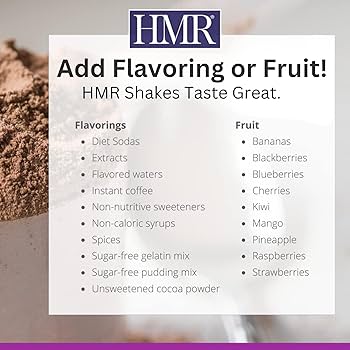How to Optimize Your GERD Diet for Better Health in 2025: Explore Proven Strategies and Tips

Effective Ways to Improve Your GERD Diet in 2025: Discover Practical Tips and Essential Solutions
Gastroesophageal reflux disease (GERD) is a common condition that affects millions of people worldwide, often causing discomfort and distress. A well-structured GERD diet plays a crucial role in managing symptoms and improving quality of life. Understanding how specific foods can trigger or alleviate acid reflux is essential for anyone looking to navigate this condition. In this article, we'll explore effective dietary management strategies, practical tips for meal planning, and GERD-friendly recipes that can help you take control of your symptoms and enjoy what you eat.
Healthy eating habits, along with lifestyle changes, can significantly influence GERD symptoms. By identifying foods to avoid for GERD and incorporating fiber-rich foods and healthy fats, you can create a meal plan that minimizes discomfort. Furthermore, understanding meal timing for acid reflux and the benefits of an alkaline diet can contribute to long-term relief. We'll also share insights into probiotics and other supportive foods that aid digestion and promote overall well-being.
This comprehensive guide will not only provide you with actionable tips but also empower you with knowledge about regular eating habits, cooking methods, and snack options. Key takeaways will include essential ingredients to include in your diet, optimal cooking techniques, and effective hydration strategies for GERD, ensuring that you are equipped with all the information needed for better digestive health.

Understanding the GERD Diet: Key Components and Guidelines
To effectively manage GERD symptoms, it is vital to understand the essential components of a GERD diet. This involves recognizing foods that can trigger acid reflux and those that can alleviate symptoms. A balanced diet should include low-acid foods, portion control, and hydration, thereby creating a food plan that eases discomfort.
Identifying Dietary Triggers for Acid Reflux
Identifying foods that trigger acid reflux is a fundamental step in dietary management of GERD. Fatty and spicy foods, citrus fruits, chocolate, caffeine, and carbonated drinks are widely recognized as major culprits. Keeping a food diary can help track specific foods that worsen symptoms, enabling you to make necessary adjustments. By avoiding these triggers, you can significantly reduce the frequency and intensity of GERD symptoms.
Incorporating Low-Acid Foods into Your Meals
Low-acid foods play a critical role in reducing GERD symptoms. Some of the best options include bananas, melons, oatmeal, and whole grains. These foods not only minimize acid content but also provide essential nutrients and fiber, which promote digestive health. Incorporating these foods into your daily meals can help create a soothing diet that supports your gut health while minimizing irritation.
Maintaining Portion Control for Better Digestion
Portion control is another vital aspect of managing GERD. Eating smaller, more frequent meals can help prevent the stomach from becoming too full, reducing the likelihood of reflux. Aim for balanced meals that incorporate lean proteins, vegetables, and healthy fats, ensuring they are adequately sized to prevent excess pressure on the lower esophageal sphincter.
Effective Cooking Methods and Meal Timing for GERD
How you prepare your meals is just as important as what you eat. Certain cooking methods can exacerbate GERD symptoms, so opting for healthier techniques is essential for successful dietary management.
Healthy Cooking Techniques for GERD
When managing GERD, it's advisable to use cooking methods that do not add excessive fat or promote irritation. Steaming, baking, broiling, and grilling are excellent options that preserve the natural flavors of the food without introducing harmful elements. Avoid frying and sautéing in heavy oils, as these can exacerbate reflux symptoms.
Optimal Meal Timing for Acid Reflux Relief
Meal timing is another critical factor in managing GERD. Eating smaller meals spaced throughout the day—rather than larger meals—can minimize discomfort. Additionally, it is advisable to avoid eating late at night to ensure ample digestion time before lying down. Schedule meals at least 2-3 hours before bedtime to alleviate potential nocturnal reflux.

GERD-Friendly Recipes and Meal Planning Strategies
Creating a personalized meal plan with GERD-friendly recipes can help individuals manage their symptoms effectively. Meal prepping can be a significant advantage for busy individuals aiming for consistency in their diet.
Delicious GERD-Friendly Breakfast Ideas
Breakfast is a vital meal that sets the tone for the day. Consider incorporating oatmeal, smoothies with low-acid fruits (like bananas), or whole-grain toast topped with nut butter as great options. These choices not only provide vital nutrients but also maintain low acidity to aid digestion.
Lunch and Dinner Recipes for Acid Reflux
For lunch and dinner, consider simple grilled chicken with steamed vegetables or quinoa with herbs. Utilizing fresh ingredients and herbs instead of spicy seasonings can enhance flavor without triggering symptoms. Recipes centered around low-fat proteins and whole grains can provide sustained energy without discomfort.
Snack Options and Side Dishes for GERD
Healthy snacks are essential for keeping hunger at bay without aggravating GERD. Opt for safe snacks like yogurt, nuts, and cut vegetables or fruits. Pairing low-acid fruits with yogurt makes for a delightful treat that aids digestion while helping you manage GERD.
Supplementing Your GERD Management: Probiotics and Herbal Remedies
In addition to dietary modifications, integrating probiotics and herbal remedies can enhance GERD management. Probiotics aid in balancing gut flora, which can improve digestion and help alleviate reflux symptoms.
The Benefits of Probiotics for GERD
Probiotics, found in yogurt and fermented foods like kimchi and sauerkraut, can enhance gut health and improve digestion. Regular consumption of these foods may contribute to digestion regulation, making it easier for individuals to manage their symptoms over time.
Incorporating Natural Remedies for Acid Reflux
Herbal remedies like ginger and chamomile tea can provide soothing effects for those experiencing GERD symptoms. Ginger has anti-inflammatory properties that can help in alleviating discomfort while chamomile can promote relaxation and digestive health. Always consult with healthcare professionals before introducing new supplements or herbs into your routine.
Long-Term Strategies for Managing GERD Through Diet
Dietary management of GERD requires a long-term commitment to understanding your body's responses and making sustainable changes. These strategies will help you build and maintain healthy eating habits.
Maintaining a Balanced Diet with Nutritional Variety
Incorporating a variety of food groups ensures a balanced diet rich in vitamins and minerals essential for managing GERD. Include an array of vegetables, whole grains, lean proteins, and healthy fats while limiting processed foods high in sugars and unhealthy fats.
Monitoring Your Progress and Adjusting as Needed
Regularly monitoring your dietary choices and GERD symptoms can help determine foods that work for you. Keeping a food diary allows you to identify and eliminate trigger foods while developing a better understanding of your personal dietary needs.
Conclusion: Embracing a GERD-Friendly Lifestyle
Embracing a GERD-friendly lifestyle involves making informed dietary choices, understanding your body, and adopting mindful eating practices. By avoiding trigger foods, incorporating low-acid options, and preparing meals with the right methods, you can significantly manage your symptoms and improve your quality of life. With the support of healthcare professionals, you can design a personalized diet that caters to your unique needs and helps you achieve long-term relief. Inquire for further suggestions, and explore additional topics through these links: GERD Education and Lifestyle Changes for GERD.